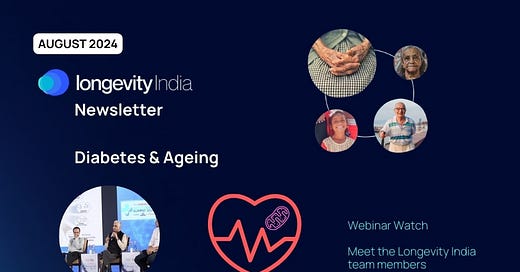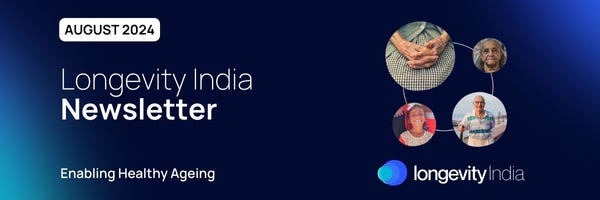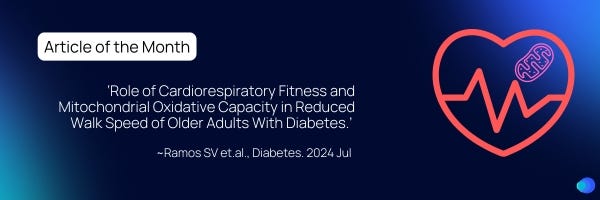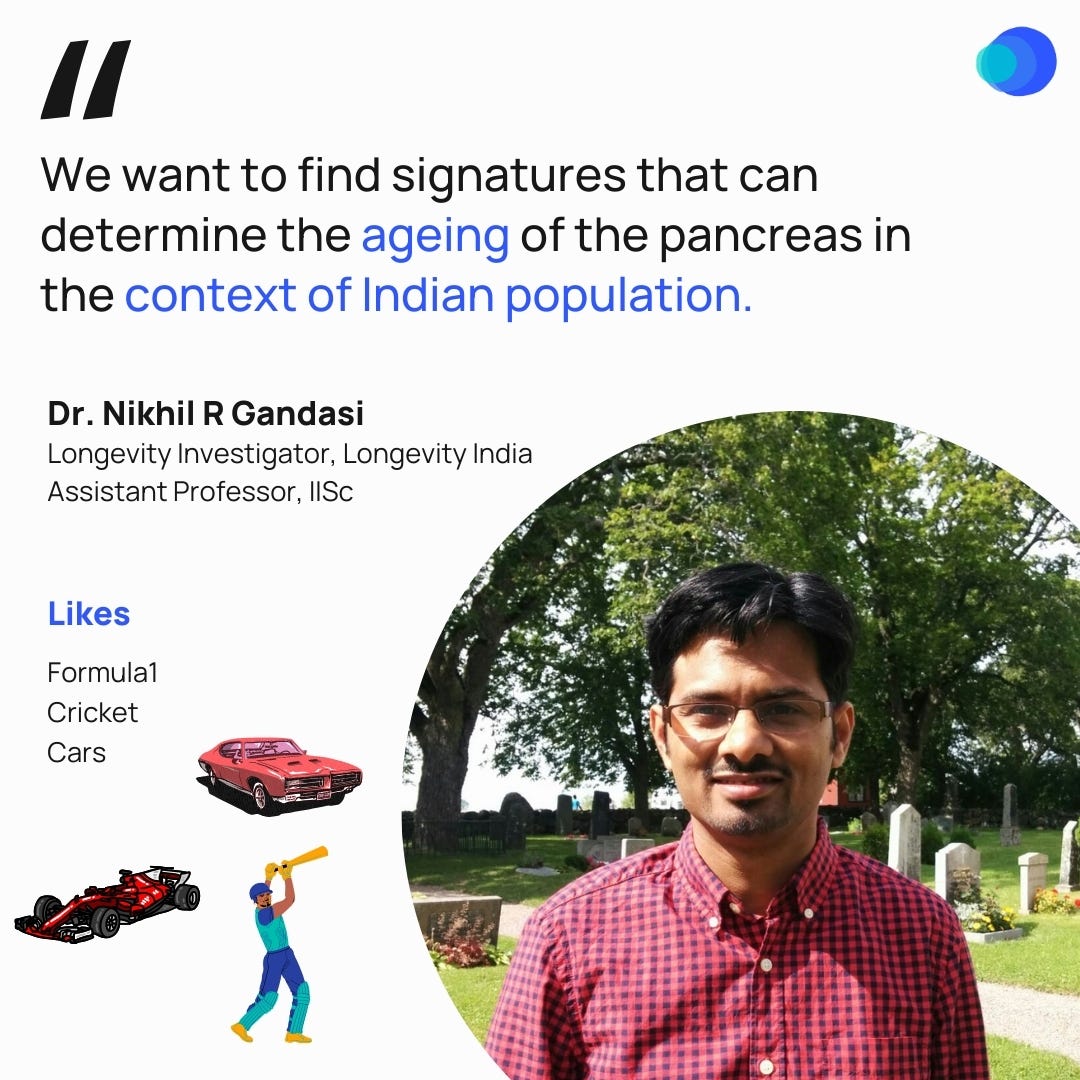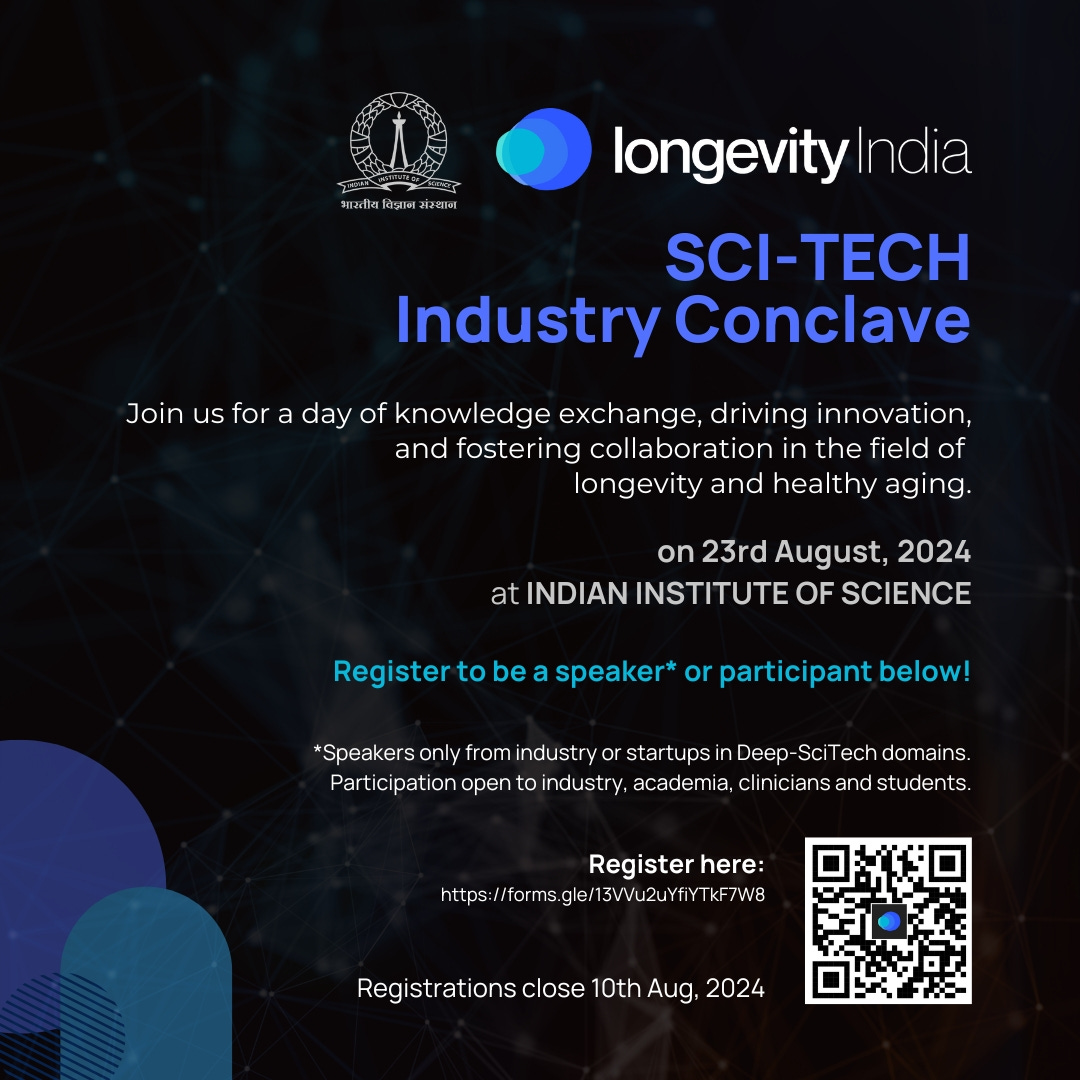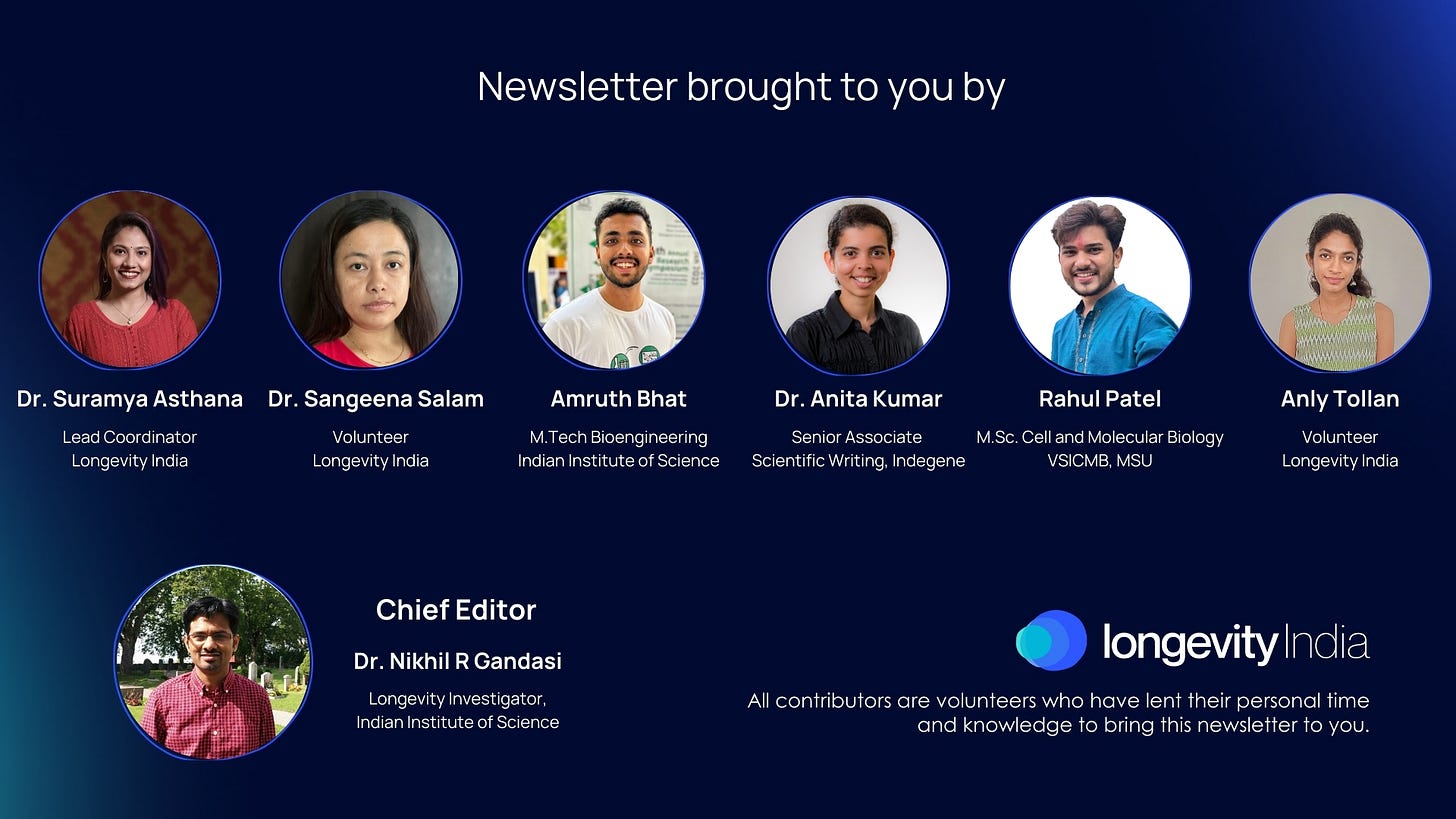Diabetes with Age: August 2024 (Vol. 1)
This month we turn our focus to Diabetes in Ageing. We feature Nikhil from our team, highlights from LII at the Dakshin Healthcare Summit and some research on cardiac fitness in diabetes.
Diabetes and Ageing: twin challenges that intertwine as we grow older. This month, we will explore how time shapes our bodies' relationship with sugar, and how wisdom gained over years can empower us in managing health.
Role of Cardiorespiratory Fitness and Mitochondrial Oxidative Capacity in Reduced Walk Speed of Older Adults With Diabetes.
Slow walking speed in older adults is associated with survival. Older adults with diabetes experience accelerated muscle loss, which impairs their mobility. Scientific studies have primarily attributed this impaired mobility in diabetic elderly to decreased muscle quality and strength. However, the roles of cardiorespiratory fitness and mitochondrial oxidative capacity in affecting mobility among older adults with diabetes remain poorly understood.
A study by Paul M. Coen and his team at the Translational Research Institute, Advent Health, published in Diabetes in July 2024, investigates whether cardiorespiratory fitness and skeletal muscle mitochondrial oxidative capacity influence walking speed in older adults with diabetes. The team utilized diabetic patient data from the Study of Muscle, Mobility, and Aging (SOMMA), a study designed to understand the biological basis of muscle aging in older adults.
Major novel findings are:
Cardiorespiratory Fitness/VO2 Peak in Diabetic Older Adults
Older adults with diabetes exhibited slower walking speeds compared to their non-diabetic counterparts in both four-meter and 400-meter walking speed tests. Additionally, older adults with diabetes had significantly lower cardiorespiratory fitness, as measured by VO2 peak, than those without diabetes.
Cardiorespiratory Fitness and Mitochondrial Oxidative Capacity Contribute to Slow Walking
This study demonstrated how both mitochondrial oxidative capacity (ATPmax) and cardiorespiratory fitness contribute to slow walking speeds in elderly diabetic patients. Mitochondrial oxidative capacity independently accounted for approximately 40-70% of the variance in walking speed. When combined with cardiorespiratory fitness, these factors together contributed to about 55-100% of the variance in four-meter walking speed.
Hypoglycemic Medication Influences Mitochondrial Oxidative Capacity
This study further confirms the effect of hypoglycemic medications—such as insulin, thiazolidinediones, and metformin—on mitochondrial oxidative capacity. Elderly patients taking these hypoglycemic medications exhibited significantly lower mitochondrial oxidative capacity compared to those not on such medications.
Clinical Relevance
This is the first study to highlight the biological quality of muscles as a key factor explaining slow walking speed in elderly individuals with diabetes. Timely intervention with physical activity could potentially improve mobility in this population. With further assessment, targeting the cardiorespiratory system and mitochondrial function could become novel strategies for preventing mobility issues in elderly patients with diabetes.
Longevity India Updates
On August 3rd, Longevity India took part at the Dakshin Healthcare Summit 2024 which revolved around gathering members of the Indian Medicare and Healthcare industry to have innovative and impactful discussions for setting the vision towards a healthier future for Indians.
Professor Deepak Saini, Convenor of Longevity India spoke about the issue of excessive sugar consumption as a roadblock towards longevity.
Here’s an article featured in South First documenting his thoughts:
Dakshin Healthcare Summit: Dr Deepak Saini reveals the secret for longer life — and it’s not fun!
Meet the Scientists
In this edition, we are thrilled to shine the spotlight on Dr. Nikhil Gandasi, integral to the core team at Longevity India. Join us as we delve into his inspiring work!
Meet Dr. Nikhil Gandasi, an Assistant Professor at the Developmental Biology and Genetics department at IISc, and adjunct faculty at Uppsala University, Sweden. His pioneering research program zooms in on metabolic ageing, particularly type-2 diabetes, in his aptly named ‘Cell Metabolism’ lab.
What led you into your career in ageing research?
Since my PhD days at Uppsala University, Sweden I have been working on type-2 diabetes which is a disorder that affects the older population. About 1 in 4 adults over 60 yrs have diabetes. People over 45 yrs go through overweight status, excess abdominal fat, poor diet, etc which increases their risk of diabetes. Our interest lies in understanding the cellular changes in various organs involved in glucose metabolism in the aged population. We are intrigued by how these changes can alter glucose metabolism and lead to diabetes in the aged population.
What are you currently working on?
We are right now working on understanding metabolic pathways that affect the islet hormone secretion during fasting and fed states. We are working to find how the cells responsible for islet hormone secretion get altered during ageing and diabetes. We are in the process of designing novel diagnostic assays to detect diabetes in the ageing population. For aged people already suffering from diabetes we are finding anti-diabetic treatment strategies that affect individual cells to improve glucose homeostasis.
Your goal for Longevity India
We want to find signatures that can determine the ageing of the pancreas in the Indian population context so that we can mitigate the onset early on. This is because once diabetes sets in the quality of life is severely affected.
Do you follow any health hacks?
Keep a tab on the diet - sugar intake, fried food intake. Build habits that help manage body weight and maintain focus on positive things so that the stress can be managed.
Webinar Watch - Click to Register
Last chance to be a part of our Industry Conclave! Registrations close on August 10th! - Click to Register
Follow us on Social Media - Click Here
For more information or contributions that would benefit you and the Longevity India initiative, please write to news.longevity@iisc.ac.in


